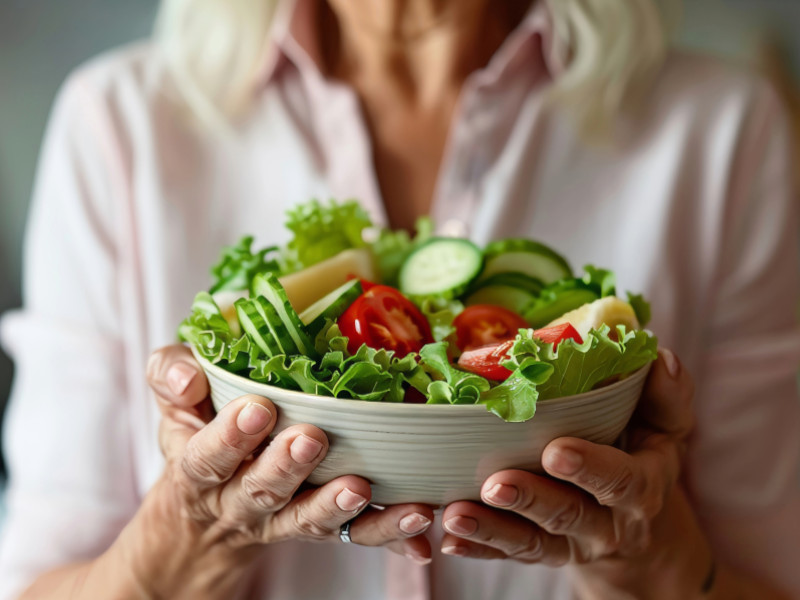
Ageing Well: Ensuring Nutritious Meals
A well-balanced diet can help maintain energy levels, support bone health, and reduce the risk of chronic diseases.
Eating Well with Meal Planning
To stay well while ageing in place, we also need to ensure a healthy and balanced diet, which can be achieved through thoughtful meal planning and planning ahead. Here are a few tips on how to make meal planning and making meals easier, doable, and most of all while remaining safe at home.
The Importance of Meal Planning
Meal planning is beneficial for seniors for several reasons. First, it ensures a balanced diet that meets nutritional needs. As we age, our bodies require fewer calories but need more nutrients such as calcium, vitamin D, and fibre. Planning meals ahead of time helps incorporate these nutrients into daily diets.
Second, meal planning helps manage chronic conditions. For instance, those with diabetes need to monitor carbohydrate intake, while those with hypertension should limit salt. Planning meals can make it easier to adhere to dietary restrictions and manage health conditions effectively.
Finally, meal planning can save time and reduce stress. Knowing what to cook each day eliminates the daily struggle of deciding on meals, making the process of cooking more enjoyable and less overwhelming. using a calendar to plan the meals for a week works well, or make it fun by using a pretty meal planner, if that gives more inspiration.
Tips for Effective Meal Planning
1. Create a Weekly Menu
Start by planning a week’s worth of meals. Include a variety of foods to ensure a balanced diet and to keep meals interesting. Aim to include fruits, vegetables, lean proteins, and whole grains. Having a weekly meal planner on the fridge can be a good reminder of what's on the menu.
2. Consider Nutritional Needs
As seniors, it’s important to focus on nutrient-rich foods. Incorporate dairy or fortified alternatives for calcium and vitamin D, leafy greens for fibre, and lean proteins such as fish or beans. Using a Mediterranean diet is often a good option - consult with your doctor around what is the best diet for you. Cooking in bulk and freezing meals for later keeps planning easy and ensures the meals remain healthy rather than something last minute. If you want to cook smaller meals for one or two, there are plenty of good recipes for this too.
3. Prep in Advance
Preparing ingredients in advance can save time and make cooking easier. Chop vegetables, cook grains, and portion out snacks at the beginning of the week and assemble as you go. Having food storage containers to store prepared ingredients will be helpful.
4. Cook in Batches
As mentioned, if you prepare larger quantities of meals these can be easily portioned and frozen. This way, you have healthy, homemade meals ready to go, reducing the need for last-minute, unhealthy options. Storing them in oven-proof glass containers means you have the option of reheating the meal in the oven or in the microwave. Alternatively, if you are happy to reheat in the microwave, which may be a safer option as it turns off by itself, you can also use microwave-safe plastic containers. Cooking in larger batches even if you are cooking for one or two, ensure a nutritious meal every day.
5. Stay Hydrated
Don't forget to include hydration in your meal plan. Drink plenty of water and consider soups and stews as part of your meals to increase fluid intake. Having a drink bottle or a water jug next to your seat, is a great way of accessing fluids regularly.
6. Order meals
If cooking is too much hassle, there are options of having meals delivered to the door. Depending on where you live, there may be "Meals on Wheels", "Hello Fresh" or other meal preparation businesses. This can also be a perk for a couple of days per week, to save time and effort. Having meals delivered is also a helpful way of getting a "check-in" and a quick hello, in particular with organisations such as "Meals on Wheels.
Meals on Wheels America: https://vimeo.com/807554279
For help with means in New Zealand: https://www.govt.nz/browse/health/help-in-your-home/cooking-and-meals/
The content on this website does not constitute professional advice. The information provided is for general informational purposes only. For specific and personalised advice, particularly in areas such as health, finance, or legal matters, we recommend consulting with a qualified professional in the relevant field.
We use affiliate links which means we may earn a small commission if you purchase through these links. The commission comes at no additional cost to you and helps support the maintenance and upkeep of this site.

As one ages, it does not necessarily mean losing independence or having to leave your home. We're here to share tips and tricks for creating a sustainable home environment and habits to age safely in place; Safe at Home.